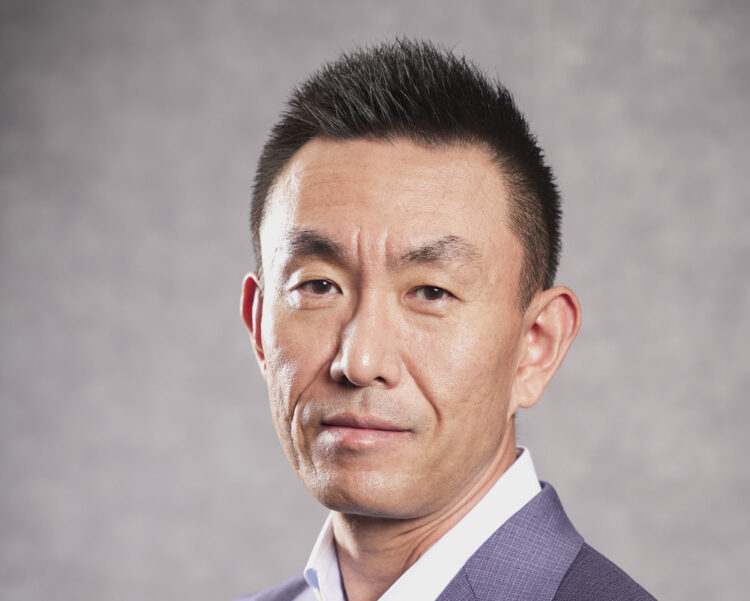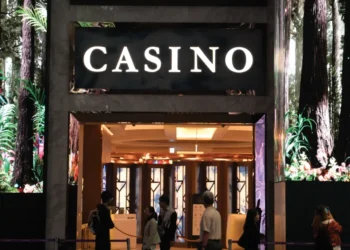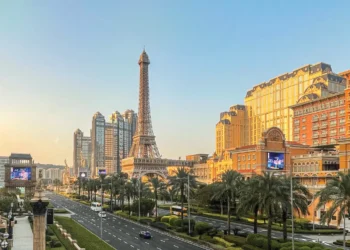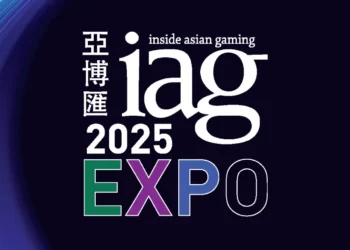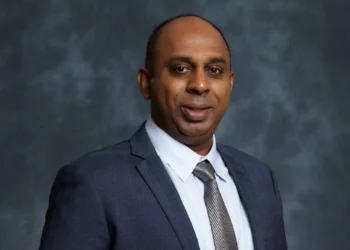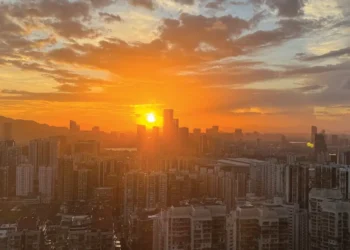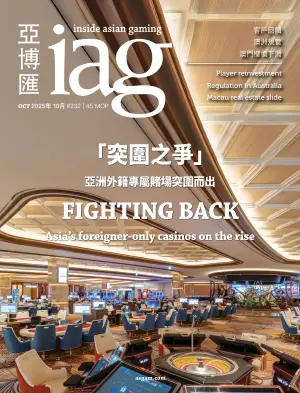IAG sits down with Daesik Han, Chairman and CEO of Hann Philippines Inc, to discuss his recently rebranded Philippines property and ambitious expansion plans in the rapidly growing Philippines gaming hub of Clark.
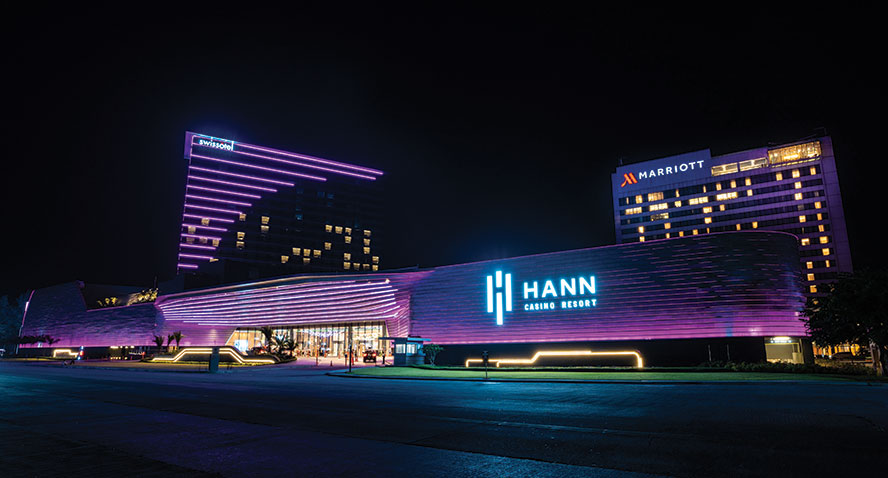 One of the earliest movers in Clark’s rise as an international casino destination, Daesik Han – the Chairman and CEO of Hann Philippines – first opened Widus as a hotel only back in 2008 before adding a casino 12 months later with a modest 24 tables and 150 slot machines.
One of the earliest movers in Clark’s rise as an international casino destination, Daesik Han – the Chairman and CEO of Hann Philippines – first opened Widus as a hotel only back in 2008 before adding a casino 12 months later with a modest 24 tables and 150 slot machines.
He later expanded this to 67 tables and around 370 slots.
However, his latest expansion project – which has seen Widus Hotel & Casino rebranded as Hann Casino Resort – grows on this further with 147 tables and 868 machines. All told, the Hann expansion covers 130,000 square meters including 380 hotel rooms across 19 storeys of the Philippines’ first ever Swissôtel, specialty dining options, retail outlets, a swimming pool, an executive lounge and event venues such as a ballroom and function rooms.
Han isn’t finished yet, however, having announced in 2019 a newly signed agreement to develop three golf courses and four hotels on 450 hectares of land in New Clark City. This comprises the much-anticipated Hann Reserve which will be an “ultra-luxe mountain resort destination” featuring Banyan Tree Hotel – described as a “sanctuary for the senses” with pool villas and a tropical garden spa — and Angsana Hotel featuring more family-friendly recreational activities.
Hann Reserve will also be home to the three 18-hole golf courses designed by some of the biggest names in world golf – Nicklaus Design, South Korea’s KJ Choi and Nick Faldo.
In addition, another integrated resort almost adjacent to Hann Casino Resort, to be called Hann Lux, is set to start construction in 2025. Hann Lux will be home to Sofitel Clark and Emblems Clark, plus a casino, high-end fashion stores, French-inspired cafes, convention facilities, residences and commercial areas.
With Han clearly leading the way in elevating Clark to become a truly international gaming and leisure destination, IAG’s Managing Editor Ben Blaschke recently spent time at Hann Casino Resort where he sat down with the man himself to learn more about his plans for the region.
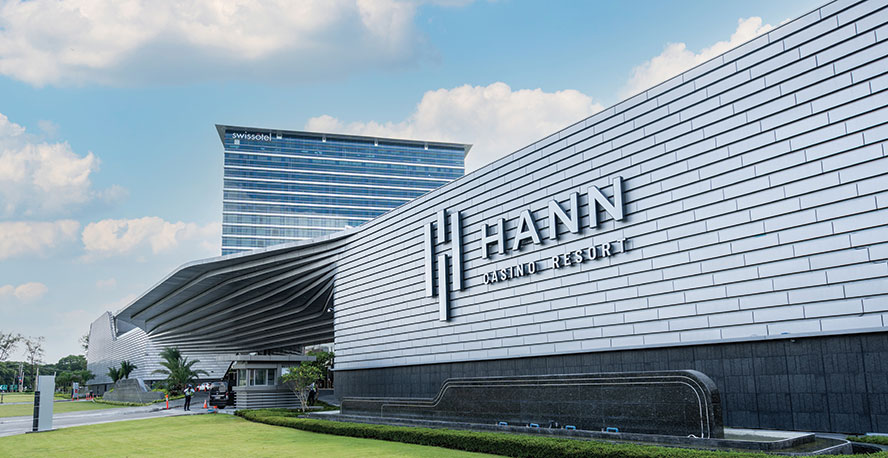 Ben Blaschke: Mr Han, you recently opened Hann Casino Resort, formerly known as Widus, as part of a US$600 million redevelopment and have also announced plans for a new resort nearby in New Clark City. What is your long-term vision for your company here in Clark?
Ben Blaschke: Mr Han, you recently opened Hann Casino Resort, formerly known as Widus, as part of a US$600 million redevelopment and have also announced plans for a new resort nearby in New Clark City. What is your long-term vision for your company here in Clark?
Daesik Han: I look at how to make ourselves different from others because the gaming industry is very, very dynamic. It started in Las Vegas, it moved to Macau and it is spreading in Asia. So I’ve always been thinking about how to make this thing, my product, different from everybody else, and what we are thinking right now is two ways of making things different.
The first one is with golf. If I’m not mistaken, I read an article from UNLV (University of Nevada, Las Vegas) about what the most valuable facilities per dollar of investment into each square meter are. The most valuable one was parking, because before there was no proper parking structure, but one of the worst was a golf course.
But the reason I’m trying to focus on golf here is because I think [our] strategy has to be different from market to market. For instance, after Solaire – which is the leader of the gaming industry in the Philippines – opened [in Manila] in 2013 a lot of casinos were affected. But in our case, we still had around 13% growth because our market (in Clark) is very, very different from the Solaire market. Our market: a lot of them are coming for golf and different entertainment [options] near here. And even in this local market, golf [follows the economy], so when the economy experiences growth, golf grows together with it. That’s what happened in Korea.
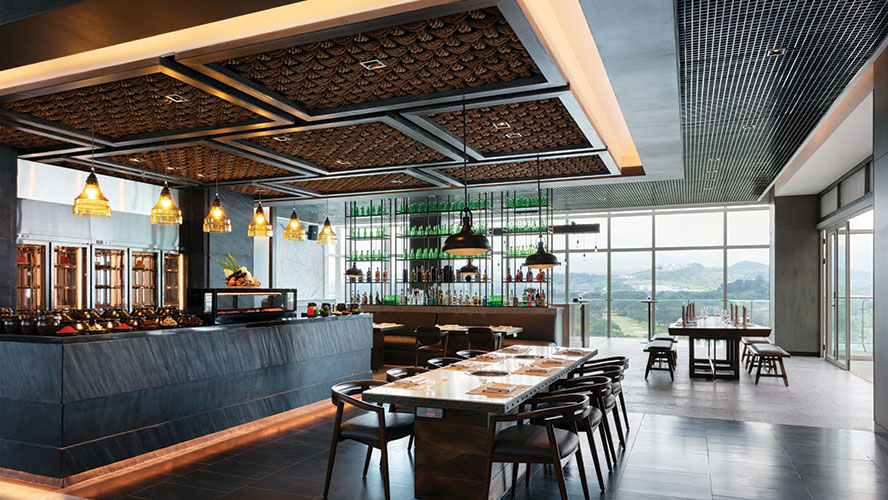 What I see in China and also in the Philippines, even during this pandemic, is younger people playing more golf, so that’s what I want to focus on. And that’s the reason why we have fantastic brands, like Nicklaus, Nick Faldo, KJ Choi, and we have Banyan Tree and that kind of brand on 450 hectares.
What I see in China and also in the Philippines, even during this pandemic, is younger people playing more golf, so that’s what I want to focus on. And that’s the reason why we have fantastic brands, like Nicklaus, Nick Faldo, KJ Choi, and we have Banyan Tree and that kind of brand on 450 hectares.
And the idea: if we are thinking about VIP players and if they are serious golfers, then 10% of them will look for this. They’re going to be very happy to look for an IR where they can enjoy themselves and play golf.
You compare that to Entertainment City which is very difficult because of the traffic. If you’re caught in the traffic on your way to play golf, you probably have to spend almost four hours – which is like spending one round of golf – on the street. Plus, if this is going to be the only IR in Asia offering these kinds of very nice brands along with the golf, then not only locals but also Chinese, Singaporeans, Malaysians, everybody who is interested in playing golf and in gaming entertainment – this is going to be their first priority. That’s how we make things different.
The other one is recently signing a contract with Accor for the Sofitel and Emblems brands, which are luxury brands. Like the Entertainment City project, I want to make this nice, but kind of different. How can we make it different? By reflecting different countries.
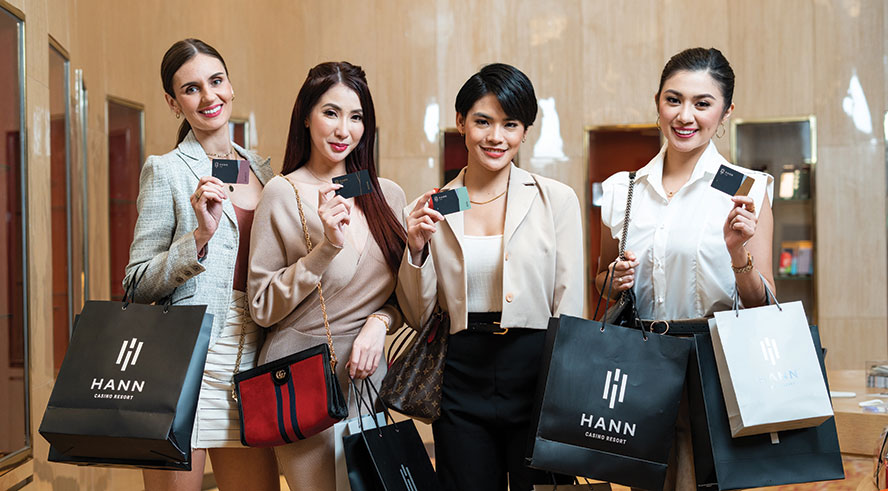 So the [Hann Lux development] is going to be a contemporary lifestyle theme. First with Sofitel – the Sofitel brand is modern, contemporary French lifestyle.
So the [Hann Lux development] is going to be a contemporary lifestyle theme. First with Sofitel – the Sofitel brand is modern, contemporary French lifestyle.
We can bring something very different, let’s say a Champagne Bar or Moulin Rouge kind of shows that are very French, European style, very sleek, like modern lifestyle.
The other one, Emblems, is going to be very modern, Korean lifestyle. Even inside one property, it won’t be like The Parisian Macao or The Venetian Macao which are very antique. This will be contemporary, modern lifestyle.
I haven’t decided what the third brand is going to be yet, but it could be Spanish with a little bit of a Filipino touch or maybe American style. So with the two ideas – the first integrated resort with that kind of theme and then the golf as well, I’m pretty confident it’s going to be something very, very different from what has previously existed in the Philippines or even in Macau. It’s going to be very, very different.
BB: You mentioned UNLV, stating that golf was one of the least valuable uses of land, and that may well be true in Las Vegas, but is it perhaps a lot more valuable in Clark?
DH: Yes, well a lot of experts are from Vegas. But you know, what we have to remember is that Las Vegas still has 50% or 60% [of visitors] or even higher coming from nearby states. They are local. And when westerners go to a golf course, they just pay for the round themselves and play. But Koreans? Asians? No. When they play, they ask, “What’s the bet – lunch or dinner? What’s the bet per stroke?”
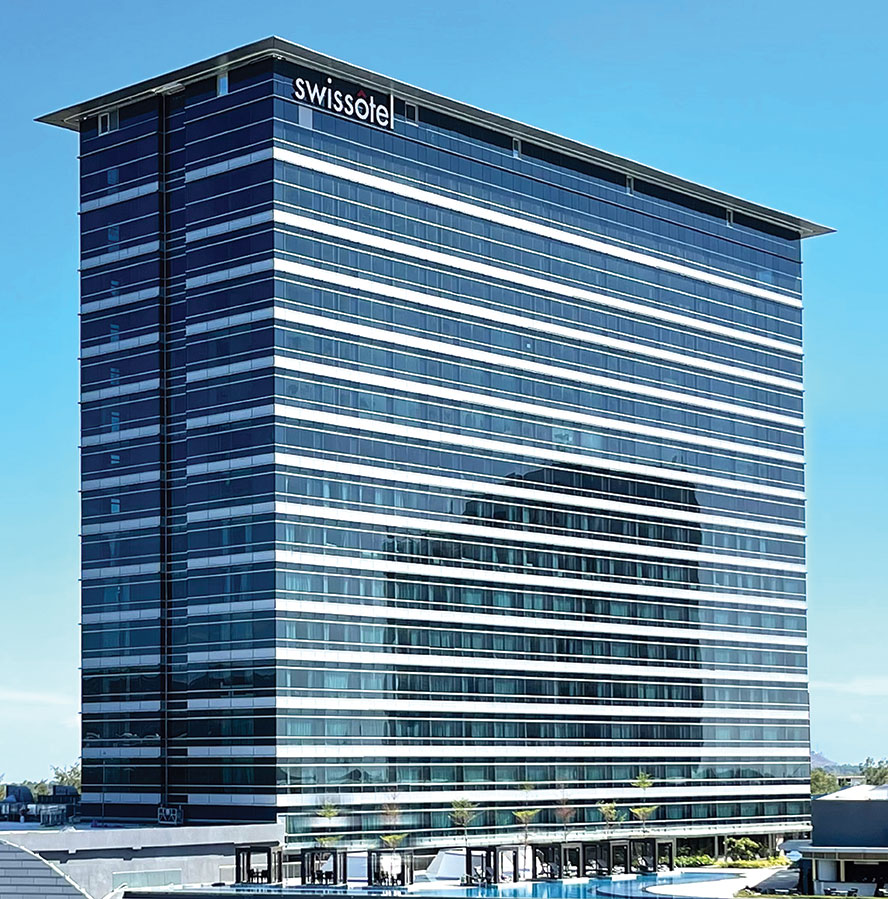 Even in the Philippines when I play with my Filipino friends, that’s what we do. So, this Asian culture is very, very different. These people have that kind of approach at the golf course, so when they go to the casino, what will their behavior be? It’s going to be different, because for westerners this is part of the entertainment. They might set aside $1,000 for gambling and $1,000 for a show or for fine dining, but Asians are very, very different.
Even in the Philippines when I play with my Filipino friends, that’s what we do. So, this Asian culture is very, very different. These people have that kind of approach at the golf course, so when they go to the casino, what will their behavior be? It’s going to be different, because for westerners this is part of the entertainment. They might set aside $1,000 for gambling and $1,000 for a show or for fine dining, but Asians are very, very different.
The thing about Clark is it has a lot of space. There are three golf courses here now, and outside, nearby, there are quite a lot of them. Plus I’m building another three of them and there are a lot of known Korean companies coming here to build golf resorts. So in five years’ time there will be quite a lot more golf courses, and this is going to be a golfing destination.
The reason I want to bring together betting and golf is that I’m already talking to promoters right now, but I’m going to organise either some KLPGA or LPGA events, if not European tour events, and these are going to be aired from the Philippines for the first time. I don’t need to talk about casino gambling, I’ll just show the beauty of the property and everybody is going to see the Hann brand and everybody will link this with our casino.
That is a way to somehow promote this entire property all over the world, so I think the marketing exposure is going to be very, very big.
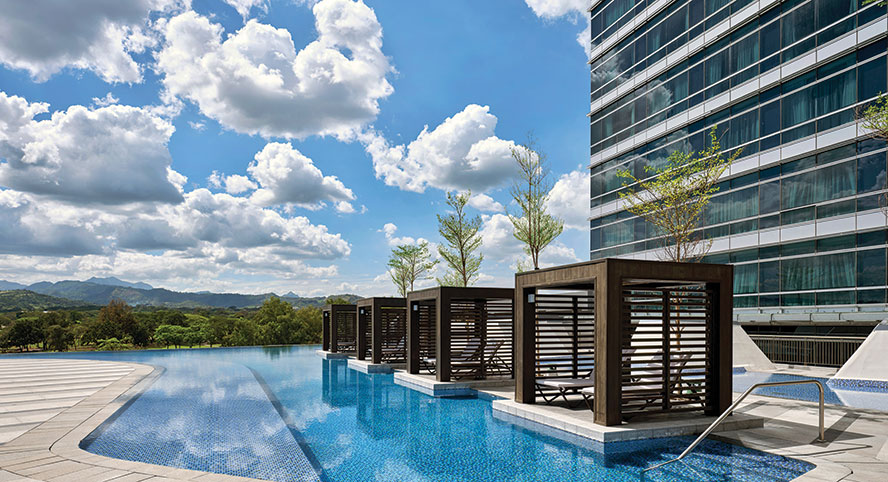 BB: We are sitting here at Swissôtel Clark which opened in March as a key facility of Hann Casino Resort, and wandering the casino it is very evident how busy your gaming floor is again. How is the recovery going?
BB: We are sitting here at Swissôtel Clark which opened in March as a key facility of Hann Casino Resort, and wandering the casino it is very evident how busy your gaming floor is again. How is the recovery going?
DH: This month (August), against [the same month in 2021] we are about five times higher in terms of GGR and against the same month in 2019 we are 150% higher. For the whole year so far, remembering that from January to March it was still very uncertain because of COVID, we are higher by around 250% against last year and then against 2019 we are higher by around 40%.
This was mostly achieved from the second quarter because the first quarter was pretty much even or lower than that of 2019. So our recovery from the pandemic is done.
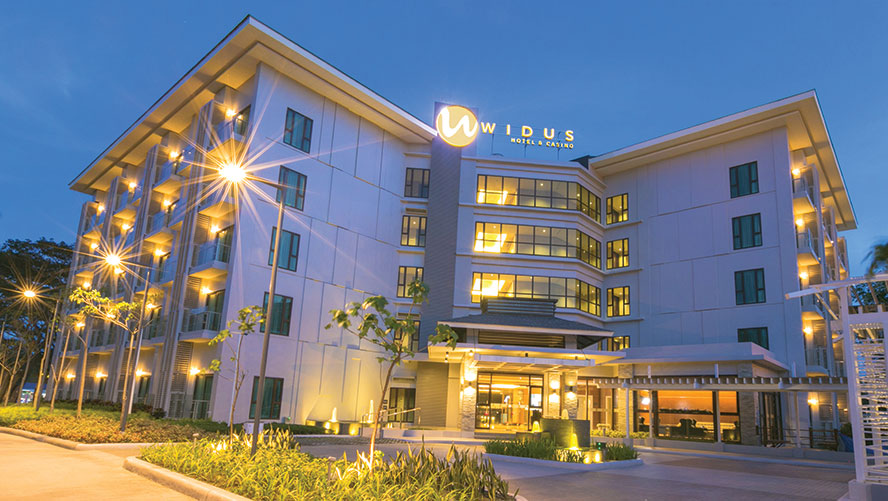 The Marriott has been outperforming pre-pandemic levels since April and we have been operating our hotels since March with around 90% occupancy on average. So the feedback from the market is very, very strong. And I think this is just starting – Clark has a lot of potential ahead as well.
The Marriott has been outperforming pre-pandemic levels since April and we have been operating our hotels since March with around 90% occupancy on average. So the feedback from the market is very, very strong. And I think this is just starting – Clark has a lot of potential ahead as well.
BB: Why did you decide that Swissôtel was the right hotel brand for Hann?
DH: There is a story behind it. When I signed the contract with Accor for Banyan Tree, I had to build another hotel. I thought of having my own brand but during this deal Accor proposed an arrangement that would be mutually beneficial. And the theme of this Swissôtel suits because I wanted this modern, contemporary lifestyle kind of thing.
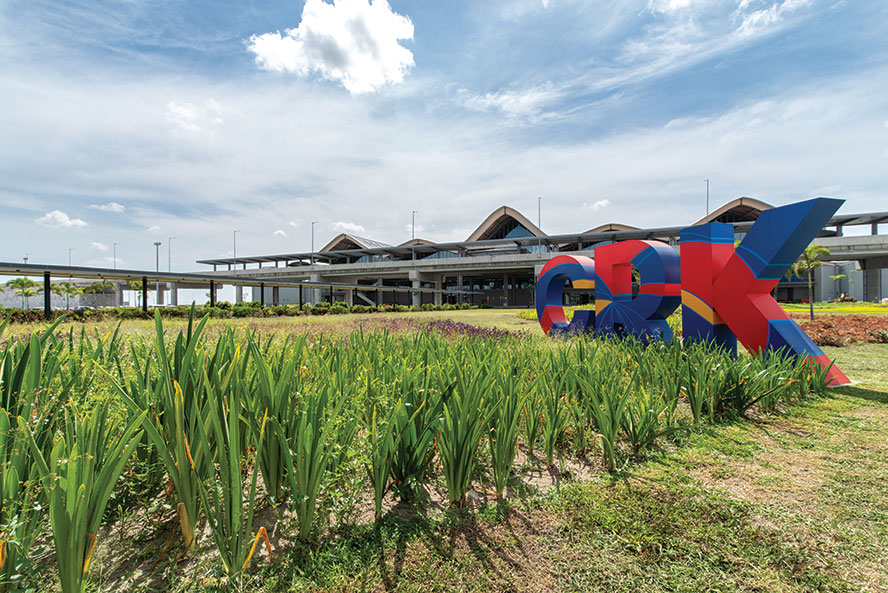 I’m not saying that Marriott Hyatt is bad. It is very, very nice, but it is more rigid and more of a business resort, whereas I believe the lifestyle brand goes better with a casino. That’s the reason why I decided, when they offered me Swissôtel, that I liked this brand.
I’m not saying that Marriott Hyatt is bad. It is very, very nice, but it is more rigid and more of a business resort, whereas I believe the lifestyle brand goes better with a casino. That’s the reason why I decided, when they offered me Swissôtel, that I liked this brand.
BB: You still have the old Widus casino area attached to this brand new Hann Casino Resort. Do you have plans for a similar upgrade to really bring it into line with Hann?
DH: When I designed [Hann Casino Resort] I predicted that around three or four years after I opened this one I was probably going to need to expand to another area or something like that – but the expansion needs to be attached to this. What we are doing right now is talking to some very well-known architects … we’re doing this competition for the master plan. And [Hann] is basically done in one or two months from now so we’re going to start designing the expansion, which is going to be attached behind this Hann Casino right now and will provide an additional 500 to 600 slots and then around 100 tables. It will also have some kind of nice food court, a little bit of a different entertainment area and maybe a kids playground. You know, here in the Philippines, when I talk about this kids club or kids playground, it gets compared to the outdated Korean model, but I want to make something proper.
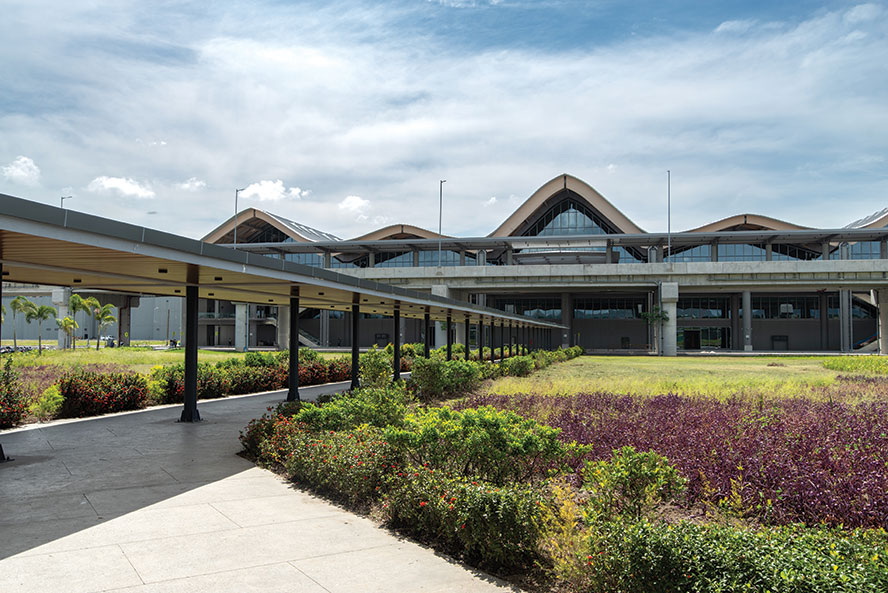 So that’s the short term plan. And long term, after maybe two years of designing, then maybe five or six years from now there will be a much bigger, better property with that kind of contemporary, modern lifestyle.
So that’s the short term plan. And long term, after maybe two years of designing, then maybe five or six years from now there will be a much bigger, better property with that kind of contemporary, modern lifestyle.
BB: Can you provide an update on the current investment level you’ve put into this property? And where do you envision the entire investment level reaching over the next five or 10 years?
DH: We have invested something between US$500 million and US$600 million right now, but I think our investment from now on is going to be much, much bigger. We’re still in preliminary discussions so I can’t give an exact number. I’ve been talking to some Korean companies and there are some local companies talking to me too. Once everything is ironed out in a couple of months, I think you will see investment in the near future become very big.
BB: Clark is rapidly expanding and becoming a genuine destination for leisure travelers but it wasn’t always that way. Why did you see an opportunity in Clark when you first opened Widus back in 2008?
DH: I first came here as a tourist in 2005 and when I walked around and I saw the airport I saw the potential, because Manila airport was fully saturated and the Philippine government doesn’t have a lot of money. The most practical way [of lowering costs was by utilizing] what they have, which is Clark. So I strongly believed that someday Clark Airport would be revived, and when it was, this area was going to be very, very different. That’s what I believed.
So I thought to myself, “What can I do here? And then I was looking for a property, I found this one and I built the first hotel. Unfortunately, it was not very successful, but I was able to have a casino license and ever since I opened the casino it has been expand, expand, expand.
BB: Walking around the property today, it is very clear that this is an international- standard property and well above anything Clark has seen before. How important is it for the area to have this sort of offering available now?
DH: In 2014, when I negotiated with Marriott, I asked for the Marriott brand, but Marriott’s Asian headquarters said, “No, Clark is not the market for Marriott, we can give you a Courtyard or something like this.”
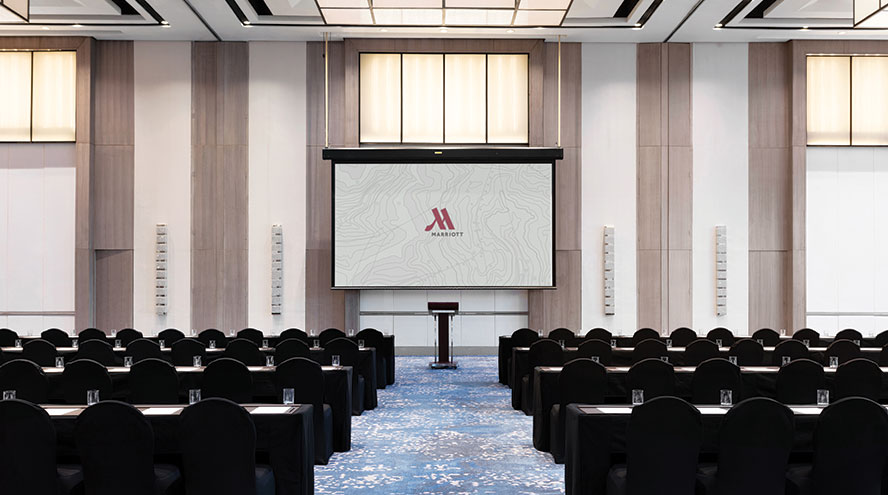 But I was very stubborn. I said, “No, I want Marriott. If not, I need to talk to somebody else.” And that’s how I got the Marriott brand. Even during the construction, the Marriott team came and we ran some numbers and they were not very confident that this Marriott would perform. But a couple of months after we opened the Marriott here in 2018, we were running at about 80% occupancy. Since then, this Marriott has gone on to become one of the top five performing Marriotts in Asia.
But I was very stubborn. I said, “No, I want Marriott. If not, I need to talk to somebody else.” And that’s how I got the Marriott brand. Even during the construction, the Marriott team came and we ran some numbers and they were not very confident that this Marriott would perform. But a couple of months after we opened the Marriott here in 2018, we were running at about 80% occupancy. Since then, this Marriott has gone on to become one of the top five performing Marriotts in Asia.
Now I have opened Hann Casino with the Swissôtel, and Swissôtel is running at 90% occupancy, and the casino; while it’s not fully packed yet, on weekends there are quite a lot of people here.
BB: Do you feel vindicated that your vision from more than 15 years ago seems to have been proven right?
DH: Developers like me, we need to come up with the right product for the market. There is always demand, but [without the] right product [customers] don’t know how to pamper themselves and how to enjoy themselves – which doesn’t mean that there is no market [for these products]. That’s what I see.
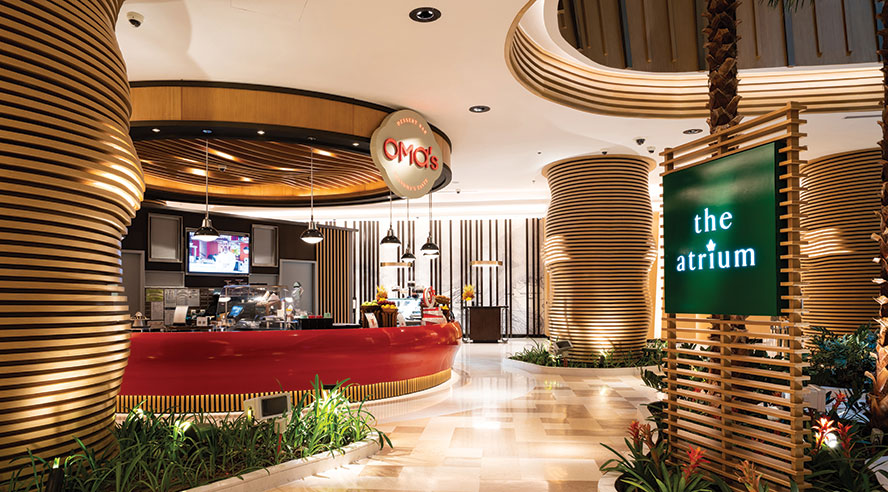 When I talk about development, accessibility is very, very important. The run from the airport to Hann is 10 minutes, and New Clark City where I’m building the three golf courses and a Banyan Tree is also 10 minutes away from the airport. Even from Manila it is maybe one hour and 40 minutes, so it’s very accessible. And as soon as you enter the property, the view is very different – it’s the mountains. That’s one of the reasons I decided to invest in Clark.
When I talk about development, accessibility is very, very important. The run from the airport to Hann is 10 minutes, and New Clark City where I’m building the three golf courses and a Banyan Tree is also 10 minutes away from the airport. Even from Manila it is maybe one hour and 40 minutes, so it’s very accessible. And as soon as you enter the property, the view is very different – it’s the mountains. That’s one of the reasons I decided to invest in Clark.
BB: Obviously infrastructure, as you said, has been improving, with a brand-new modern terminal at Clark International Airport and new road and rail links going in. Where do you see the current level of infrastructure and what do you think still needs to be done to ensure Clark keeps growing?
DH: In the case of Korea, the previous Korean president led Korea to become one of the very strong economic powerhouses in Asia. What he did was to get a loan from Japan and build an expressway linking Seoul to Busan. And after that, naturally, in the areas near this expressway, people found a way to expand and develop to make money out of it. So having good infrastructure is a role of government, but once it’s done the private sector will come in and then [the development cycle] is just starting.
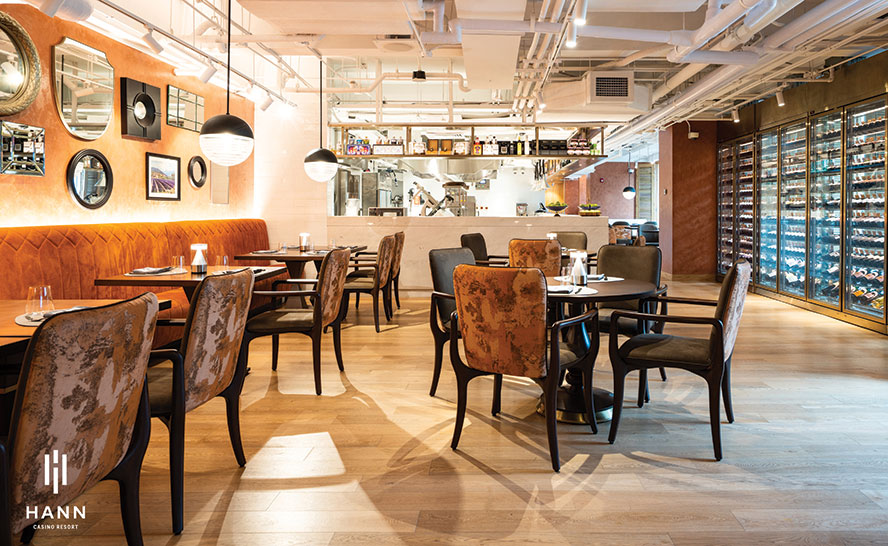 As you know, this New Clark City concept was developed many, many years or even decades ago – the idea being that in the case of a natural disaster, Manila is very vulnerable because it has a lot of reclaimed land and if the sea level rises by a meter a large area is going to be affected.
As you know, this New Clark City concept was developed many, many years or even decades ago – the idea being that in the case of a natural disaster, Manila is very vulnerable because it has a lot of reclaimed land and if the sea level rises by a meter a large area is going to be affected.
That’s the reason the government said, “Why don’t we look ahead for a [new] area?” And there is a reason the American military picked Clark for their air base. So that’s why the Philippine government started coming up with this idea of New Clark City.
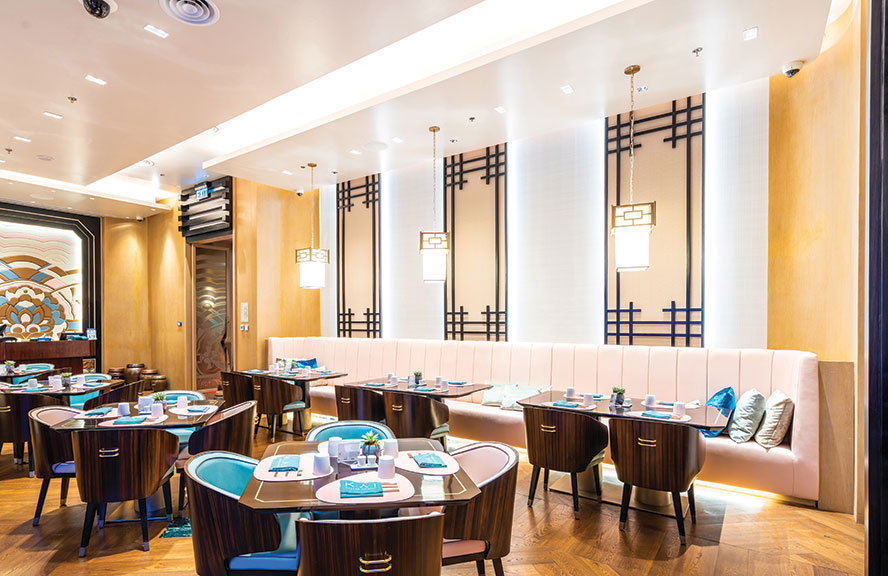 Again, as long as this infrastructure is built, I think people will come. I have received a lot of calls from different investors here and there. Why? Because they see the infrastructure is there now and they see the potential.
Again, as long as this infrastructure is built, I think people will come. I have received a lot of calls from different investors here and there. Why? Because they see the infrastructure is there now and they see the potential.
BB: There are other casinos in Clark that are also upgrading their facilities, such as Royce and in recent years D’Heights. Do you believe there will be a beneficial cluster effect in Clark?
DH: I think so. Definitely in the end that’s what I hope because we are competing with different jurisdictions like Macau and Singapore so we need to provide something different. And the facilities have to be at international level, not local level. You know, this is still lacking right now but in the coming years, if some really capable operators step in and they build a really nice IR here, I think that will benefit everybody.
BB: Your recovery at the moment is largely being driven by locals, so the international arrivals have yet to return in full force. How much growth do you forecast is still to come in the next six to 12 months?
DH: It’s a good point. Right now, it’s not dramatic. I mean, from March to April, people started to feel like this big wave [of COVID] was gone and the government began to ease restrictions. That was the time when we felt like a lot of people started moving around: from April. That’s the time our GGR really jumped.
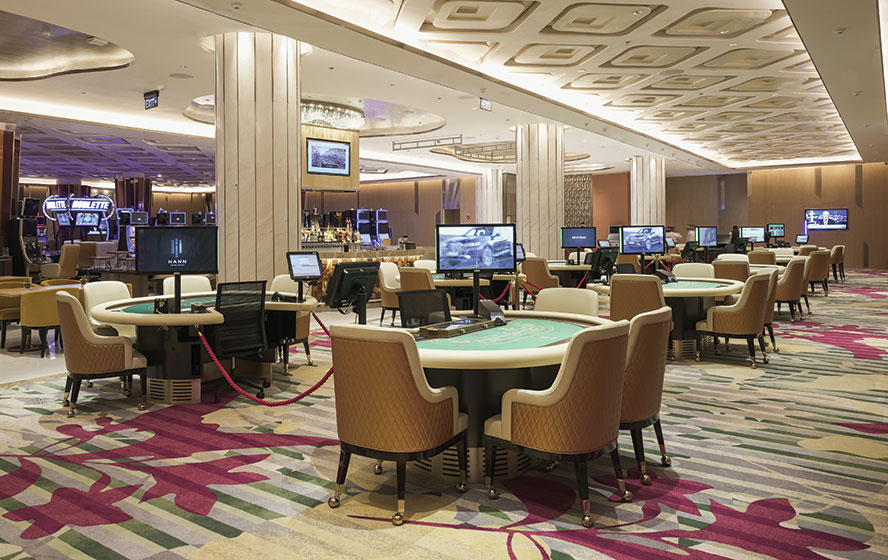 Still, every month we are seeing steady growth from the local market, but in the case of the foreign market, there used to be a very strong Korean market before the pandemic. I think more than 50% of revenue came from the Korean market. And it’s getting bigger. I mean, the percentage is going higher and higher, but the recovery of flights from Korea is only something like 30%, so there is still a long way to go. That’s why, by the end of this year and maybe towards the middle of next year when a lot more people really feel this pandemic is over, I think we’ll start seeing much healthier numbers mainly because of Korea. Plus you asked about this newly upgraded airport which is much better than the previous one. And whether I like it or not, those investors, they have to look for a different destination to inaugurate flights. And definitely we’ll get benefit out of this as well. So we’re expecting pretty strong rebounds from foreign markets.
Still, every month we are seeing steady growth from the local market, but in the case of the foreign market, there used to be a very strong Korean market before the pandemic. I think more than 50% of revenue came from the Korean market. And it’s getting bigger. I mean, the percentage is going higher and higher, but the recovery of flights from Korea is only something like 30%, so there is still a long way to go. That’s why, by the end of this year and maybe towards the middle of next year when a lot more people really feel this pandemic is over, I think we’ll start seeing much healthier numbers mainly because of Korea. Plus you asked about this newly upgraded airport which is much better than the previous one. And whether I like it or not, those investors, they have to look for a different destination to inaugurate flights. And definitely we’ll get benefit out of this as well. So we’re expecting pretty strong rebounds from foreign markets.
BB: Do you see Clark potentially stealing Manila’s thunder one day in the future or will it simply help grow the overall pie?
DH: Definitely there will be a certain market overlapping. But what I’m envisioning … we are providing a different experience. If we provide the same experience then it’s going to be direct competition between Entertainment City in Manila and Clark. But as you know, Entertainment City is much bigger and they have invested much more so, logically speaking, we cannot really compete with those guys.
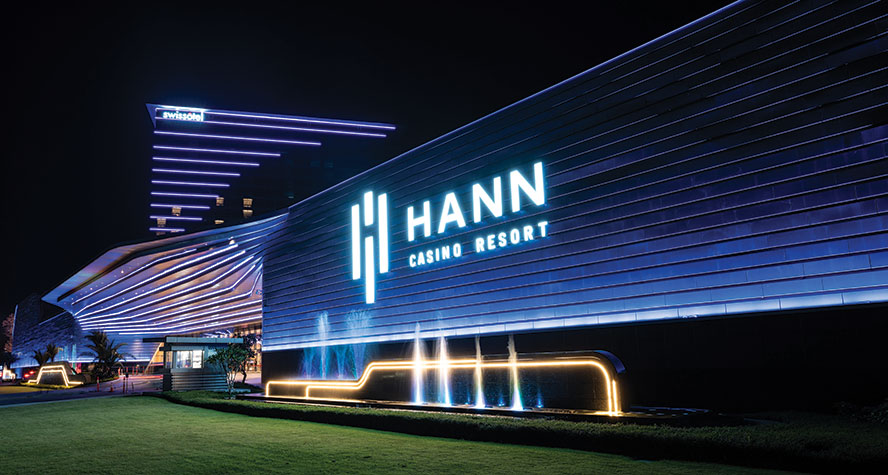 But if we provide something different, then we are not talking about attracting 10% of Manila’s market, we are talking about 10% of all Asia, which is much bigger. So I can really expand the market itself with this very nice golf experience. The other difference is that a lot of developers, when they build a golf course, they sell membership. I’m not going to sell membership. It’s going to be managed by us and it’s going to be mainly for our casino players and hotel guests.
But if we provide something different, then we are not talking about attracting 10% of Manila’s market, we are talking about 10% of all Asia, which is much bigger. So I can really expand the market itself with this very nice golf experience. The other difference is that a lot of developers, when they build a golf course, they sell membership. I’m not going to sell membership. It’s going to be managed by us and it’s going to be mainly for our casino players and hotel guests.

